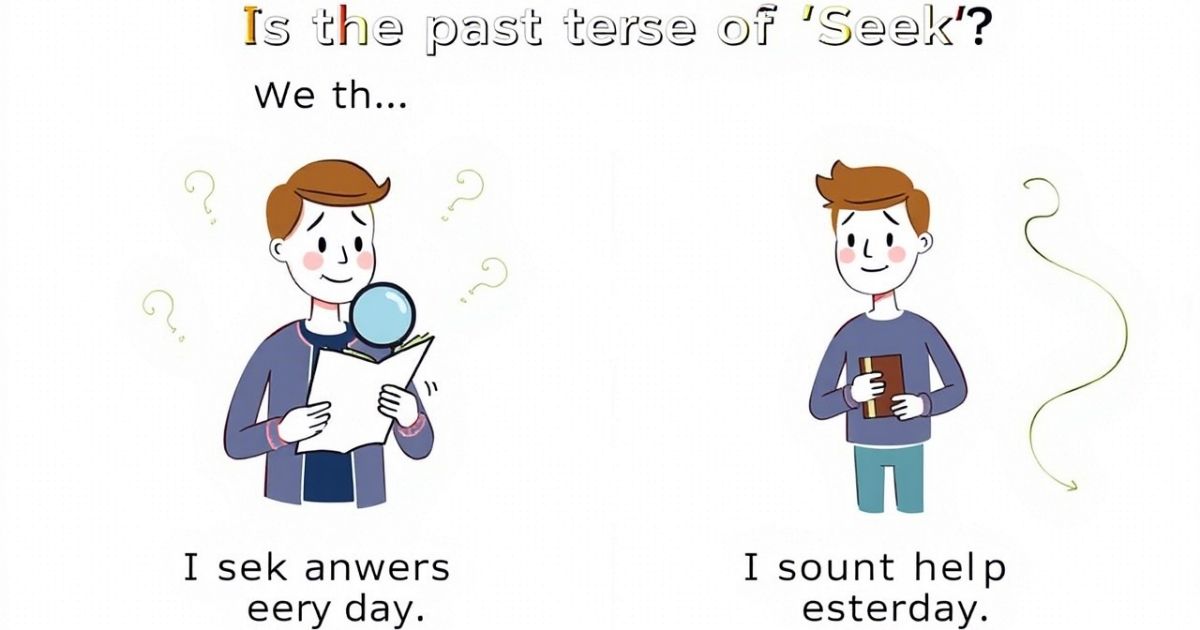When it comes to mastering English grammar, understanding verb tenses is key. One common question people often ask is, “What is the Past Tense of ‘Seek’?” The answer might seem simple, but knowing how to use it properly can help you communicate more clearly. Many struggle with knowing whether to say “seek” or “sought” in the past tense. So, what is the past tense of ‘seek’?
The correct answer is “sought,” a form that refers to actions completed in the past. Whether you’re reflecting on a past experience or discussing something you’re pursuing now, getting this verb right is essential. In this article, we’ll break down the differences between seek and sought, helping you master the use of these verbs in everyday conversations and writing.
Read this Also: The Past Tense of Meet: Picking the Right Verb
In the Present: Seeking Wisdom
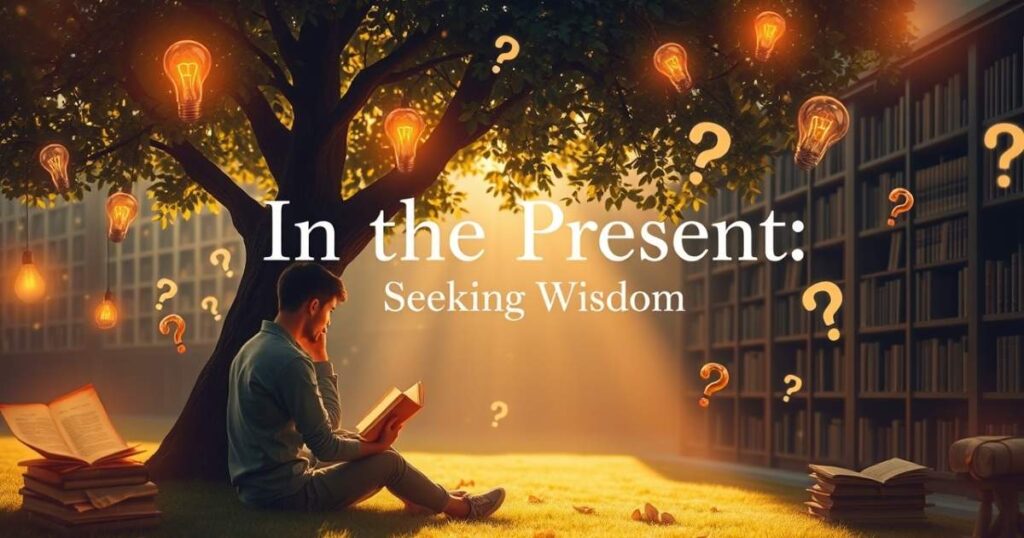
When we say someone is seeking something, it means they are looking for it now or soon.
The word “seek” is used when the action is happening now or is about to happen.
It shows someone is trying to find something or reach a goal.
It is an active word.
For example, if you read a book to seek knowledge, you are looking for information while reading.
When you seek answers or help with a hard choice, it means you are still searching.
You are part of the process.
You want to understand or fix something.
So, when you use “seek,” it means you are doing something right now to find what you need.
Using seek in this way can also be part of a larger mission or quest, a long-term journey toward wisdom and deeper understanding. This can be seen in the way people seek inspiration or new ideas in their daily lives. Whether in the fields of science, art, or philosophy, humans are constantly in pursuit of truth, using the present moment to discover new paths and knowledge that will help them achieve their goals. Seek in the present means you’re actively working toward something, and you are in a quest for improvement or discovery.
Example:
- I seek wisdom through meditation every morning.
- She seeks guidance from her elders when making life decisions.
- They seek truth in ancient texts and old history books.
- He seeks inspiration in every sunrise he watches.
- We seek knowledge in the lessons life teaches us every day.
In the Past: The Quest of ‘Sought’
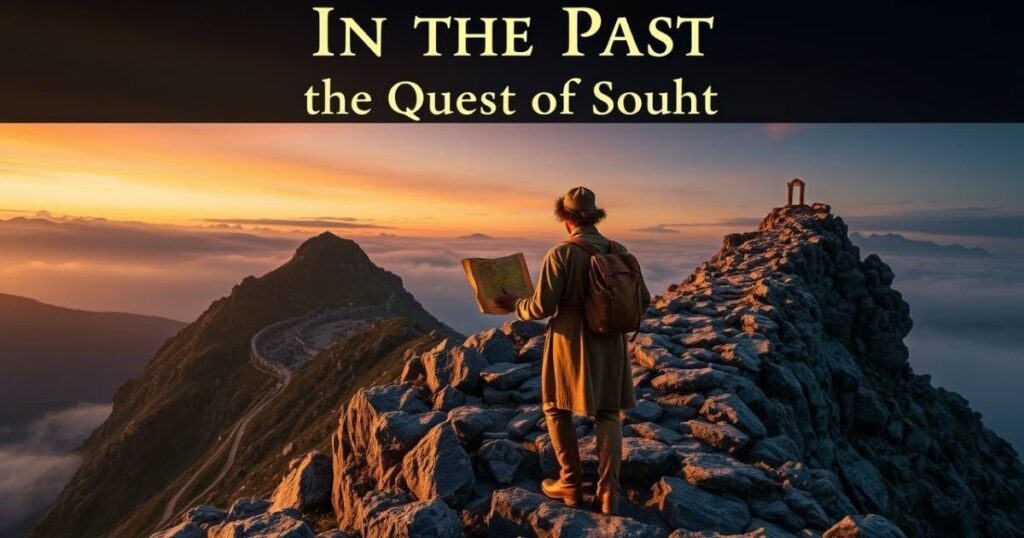
When you talk about a search in the past, you use the word “sought.”
Sought is the past tense of seek.
It tells us the action happened before now.
For example:
“Last summer, she sought peace in the mountains.”
This means she looked for comfort in the past.
Sought is often used in stories about adventure or discovery.
It shows that someone was looking for something important.
In the past, people sought answers to big life questions.
They still do today.
Long ago, elders read old books to find wisdom.
Scholars searched for truth about the world.
Sought shows that what they were looking for really mattered.
It was valuable and meaningful.
The word sought helps us remember those journeys.
It connects us to the past and to the things people truly cared about.
Example:
- Last summer, she sought solace in the quiet of the mountains.
- He sought answers in books written by wise philosophers.
- They sought guidance from the village elders before the ceremony.
- I sought inspiration in old journals and poems I wrote years ago.
- We sought wisdom in the stories passed down from history.
Present vs. Past: Easy Recap
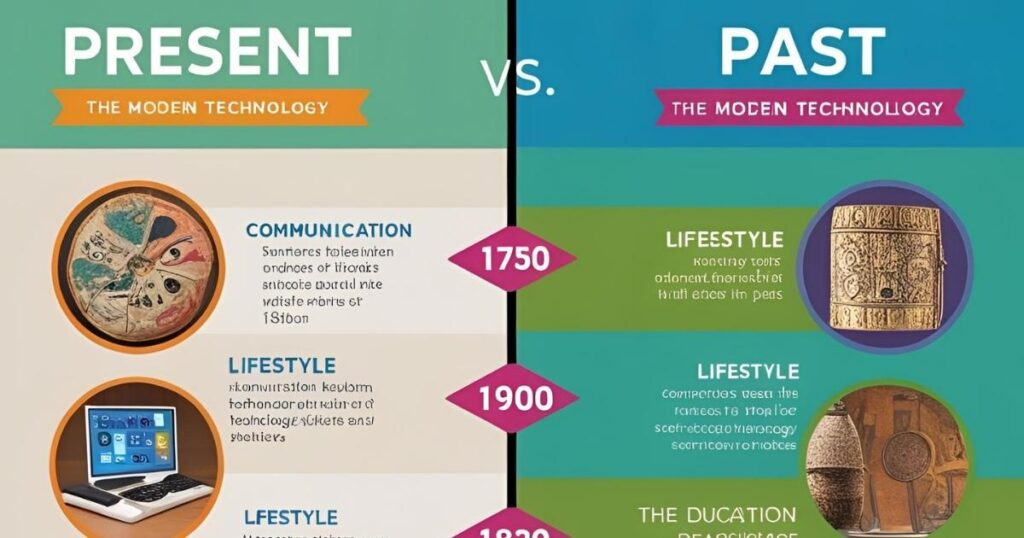
To make it clearer, let’s quickly look at the difference between seek and sought. If you’re talking about an action that is taking place now, you use seek. For example, you might say, “I seek new ideas every day,” meaning that you are actively involved in finding fresh thoughts or inspiration at this moment. On the other hand, when you refer to a quest or search that already happened, you use sought. For instance, “Yesterday, I sought knowledge in a library,” implies that the search took place in the past.
This simple difference helps keep your storytelling clear and your communication on track. If you are telling someone about what you are doing now, you would say “I seek inspiration,” while if you’re telling a story about something you did before, you would say, “Last week, I sought guidance from my mentor.” The change from seek to sought makes it easy to distinguish between present and past actions, making it important in both daily language and more formal writing.
Examples:
- I seek new ideas every day. / Yesterday, I sought comfort in my favorite book.
- She seeks knowledge in school. / Last week, she sought help from her teacher.
- They seek peace in nature. / A year ago, they sought peace in travel and silence.
- He seeks truth in science. / In college, he sought answers in long research papers.
- We seek adventure on weekends. / During our last trip, we sought thrills in the mountains.
When to Say What
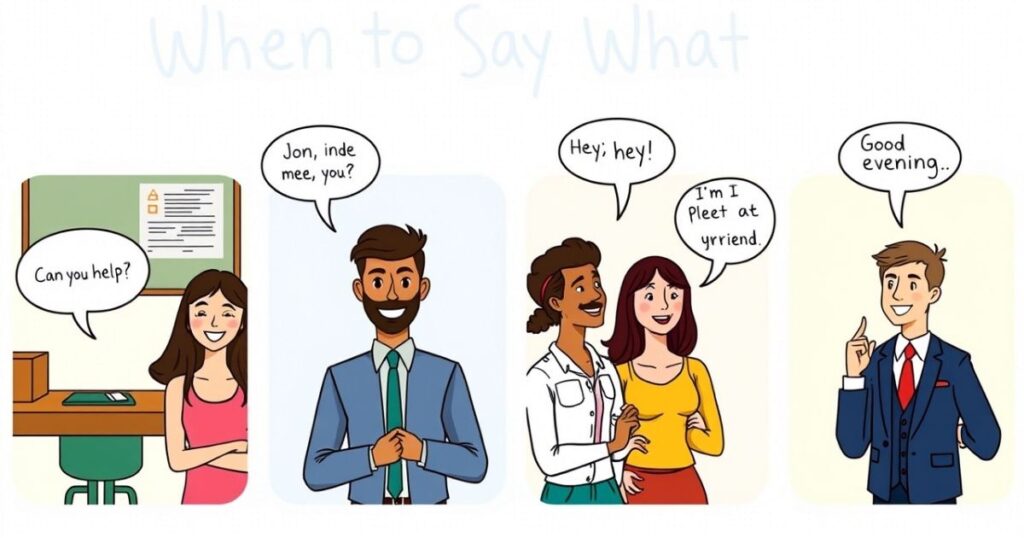
Knowing when to use seek for present actions and sought for past guests is important for effective communication. Whether you’re telling a story, giving guidance, or just discussing your experiences, understanding the proper usage of these two forms of the verb can make a big difference. For example, if you are writing about someone who is on a mission right now, you would say they seek something, like in, “She seeks truth in everything she does.” However, if you’re talking about something they were on a journey for in the past, you would say, “In history, they sought wisdom from the greatest thinkers.”
The choice of using seek or sought can also help make your writing more dynamic and varied, giving your words depth and clarity. Whether you are telling a story of a present adventure or reflecting on a past journey, using the correct verb form helps create a stronger connection between the reader and the narrative. It can also provide a sense of time and progression, showing how someone’s quest has changed over the years or how their goals have evolved from past to present.
Examples
Let’s see how this works in real sentences:
Present:
I seek inspiration in nature walks.
She seeks guidance from her mentors.
They seek answers in books and deep conversations.
Past:
Last summer, I sought wisdom while traveling.
Yesterday, he sought solace after a stressful day.
In their youth, they sought the truth behind every belief.
Each sentence uses seek or sought correctly based on time, and you can see how the verb helps guide the meaning. Whether it’s the present moment or something that happened long ago, these small changes make a big difference in the clarity and emotion of your storytelling.
Mastering the Verb Game
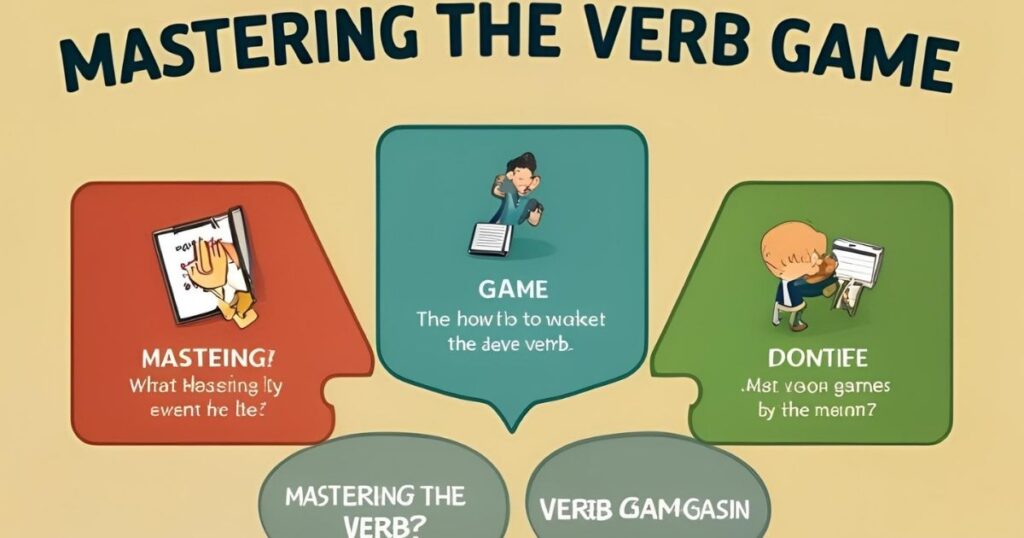
Mastering the use of seek and sought isn’t just about grammar; it’s about enhancing your language and storytelling skills. The ability to use these verbs correctly can make your speech and writing more precise and engaging. It also adds a level of sophistication to how you express ideas and communicate actions. Whether you’re seeking something important now or looking back at what was sought in the past, understanding these subtle distinctions can elevate your language.
By mastering verbs like seek and sought, you unlock a richer vocabulary that can be used to express complex thoughts and deep reflections. Each time you shift from seek to sought, you’re tapping into different layers of meaning, revealing the journey from active pursuit to reflective achievement. Whether you’re sharing personal stories or exploring the great quests of history, knowing how to use these verbs appropriately strengthens your ability to communicate effectively.
Wrapping Up the Time Talk
In conclusion, the past tense of seek is sought. Whether you are on a mission today or looking back at an adventure from the past, understanding when to use seek and when to use sought helps you express yourself clearly and accurately. From seeking knowledge in a book today to recalling the times when you sought guidance in the past, these small verb changes give your words meaning and direction. Knowing when to use each form keeps your storytelling grounded in time, whether you are talking about something present or past.
Ultimately, mastering this simple grammar rule allows you to speak and write with greater precision, telling stories that reflect both journeys and the lessons learned along the way. By using seek for what is happening now and seeking for what happened in the past, you make your communication clearer, more effective, and full of wisdom. So, next time you’re reflecting on a past quest or embarking on a new one, remember the powerful difference between seek and sought, and make sure you’re using the right one for the right time.
Conclusion
“What is the Past Tense of ‘Seek’?” is a question many people ask. The answer is simple: the past tense of “seek” is “sought.” Knowing this helps you speak and write more clearly. Whether you’re talking about a quest you’re on now or one from the past, using the right tense makes your language more accurate.
So, the next time you wonder “What is the Past Tense of ‘Seek’?”, remember: it’s “sought”. Using the right verb form keeps your sentences smooth and your meaning clear. What is the Past Tense of ‘Seek’? Whether it’s a journey you’re currently on or one you took in the past, using “seek” and “sought” properly makes all the difference in your communication.

Gramcoachpro is your go-to platform for mastering grammar, writing, and communication skills. If you’re a student, teacher, or content creator, we provide easy-to-understand tips, examples, and tools to improve your language — fast and effectively. Our mission is to make better writing simple and accessible for everyone.

